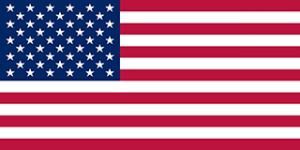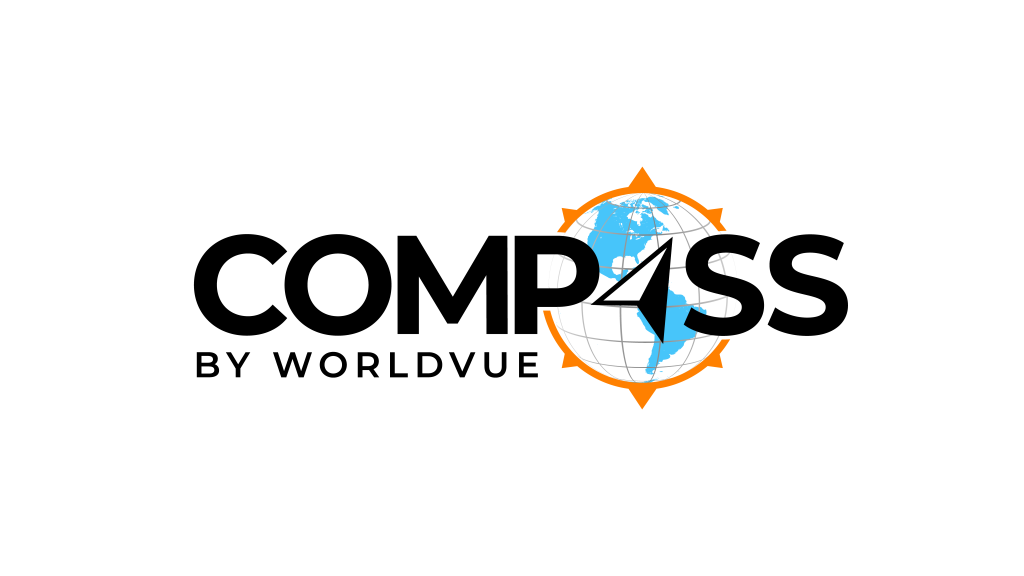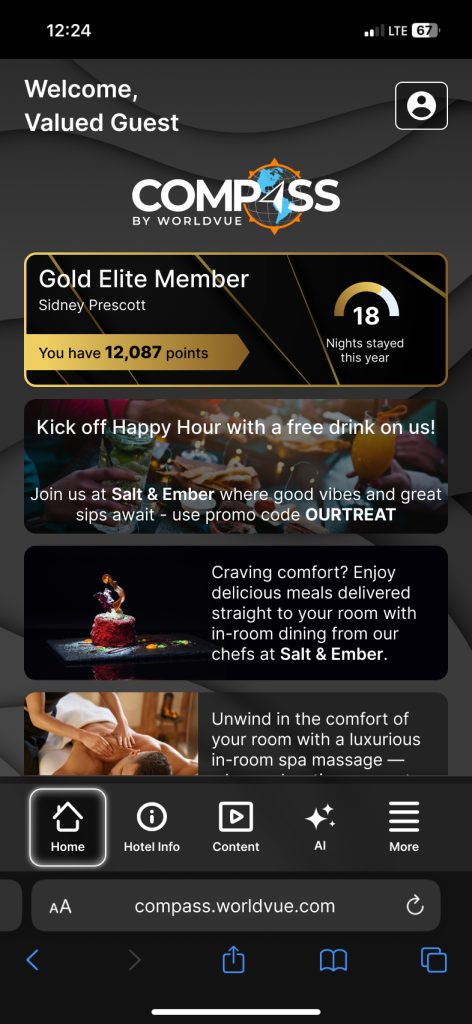Table of Contents
Remember when it was enough to offer hotel guests cable TV and maybe HBO? Those times are long gone. Today’s guests expect a wide variety of entertainment choices to mirror the experience they get at home. While guests increasingly seek options such as streaming, many still want live TV. In fact, the vast majority of travelers in a recent survey say they watch live TV while traveling. Most would even select one property over another based on access to local, live, and on-demand content.
As hotels adapt to these expectations, satellite TV has become popular due to its wide range of channels and availability, even in remote locations. However, maintaining a reliable connection can be challenging under some circumstances. Conditions such as terrain, location, and weather can negatively affect reliability. However, satellite providers such as WorldVue partner Dish Business have taken a proactive approach, addressing these conditions to ensure reliable performance and a better guest experience.
Advanced Technology
Technological advancements have brought innovative solutions to improve satellite TV reliability in tough conditions. For example, Adaptive Coding and Modulation (ACM) technology automatically adjusts the satellite signal based on current conditions. ACM helps optimize performance and reduces the likelihood of signal dropouts during bad weather.
Satellite TV systems also adapt their operations to use a frequency band suitable for delivering many broadcast signals across a wide area. This is known as the Ku band, and it’s used by almost every home satellite service in the world. The Ku band can transmit signals over a vast area due to the wide deployment of compatible satellites. It’s also able to transmit well under a variety of weather conditions. Some services also use the Ka band because of its high data transfer rate. However, the Ka-band is more susceptible to interference from rain, snow, and ice.
Another practical innovation is dynamic beamforming, which allows satellites to adjust the direction and focus of their beams in real time. This enables stronger, more reliable communication even in harsh weather.
Most major providers also offer equipment using high-gain antennas and signal amplifiers. These features can help maintain a strong, clear signal even during adverse weather conditions.
Planning for Bad Weather
Heavy rain, snow, and wind can all affect satellite TV signals, especially when the weather is intense. In addition to the technologies noted above, satellite TV providers offer several innovations designed to improve durability and maintain a reliable signal even in bad weather.
For example, DISH Business manufactures its dishes using thermosets, which are strong composites used in modern aerospace applications. These commercial-grade dishes are three times more powerful than residential dishes. Dish Business tests its commercial dishes to ensure they can withstand up to 80 mph winds – the equivalent of a Category 1 hurricane.
In some cases, providers can add heating elements to dishes to keep them snow- and ice-free. For Dish Business’s cold-weather dishes, the heaters are temperature-activated, turning on automatically in case of snow and ice buildup.
Some providers even offer hybrid solutions that enable properties to use an alternate connection (wired, wireless, or mobile) in case of weather-related satellite TV outages.
Of course, preparing for rough weather includes more than just choosing the right satellite TV equipment. An experienced provider will also consider equipment placement and use weather-resistant mounting hardware. For a truly reliable solution that’s less susceptible to rough weather, you’ll also need to plan for backup power.

Adapting to Difficult Locations
Factors like climate, terrain, and surrounding features can also affect satellite TV signals. If mountains, tall buildings, or even a lot of tall trees surround your property, it can be challenging to maintain a reliable signal.
WorldVue partner DISH Business is one of the only providers with 100% coverage serving all US communities, including rural and mountainous regions. Their comprehensive site surveying process assesses factors like climate, cabling needs, and spatial constraints. This process ensures installers mount equipment at the optimal location and angle to avoid interference from nearby trees, buildings, and landforms. It also enables them to provide nationwide coverage in the US with 99% signal reliability.
Ongoing Maintenance
As with any technology solution, ongoing maintenance is essential for the best performance. Most major satellite TV providers offer remote monitoring and equipment updates as part of their service, but property owners can also take steps to ensure a reliable signal.
For example, after storms, look around for fallen trees and other debris that could hamper the signal. If you don’t have a heated dish, you may need to clear snow and ice from your dish periodically. In tropical regions where trees and foliage grow quickly, you may need to keep watch to ensure that new growth doesn’t obscure a previously clear line of sight.
Providing a variety of guest entertainment choices without interruption is crucial for a great guest experience. By choosing an experienced provider who leverages strategies and innovations as described above, hotels can ensure a reliable and enjoyable satellite TV experience for their guests.
WorldVue and DISH Business are building on our 25-year partnership, delivering entertainment technology to some of the world’s largest hotels. With over 60 years of unparalleled knowledge and expertise in hotel entertainment, we take care of the technology so you can take care of your guests.



